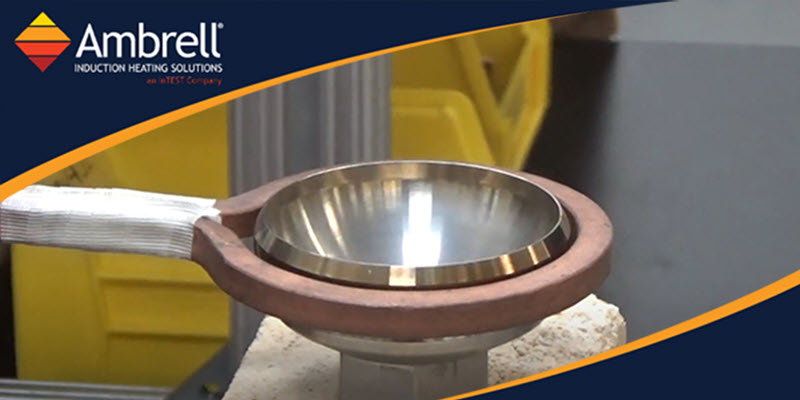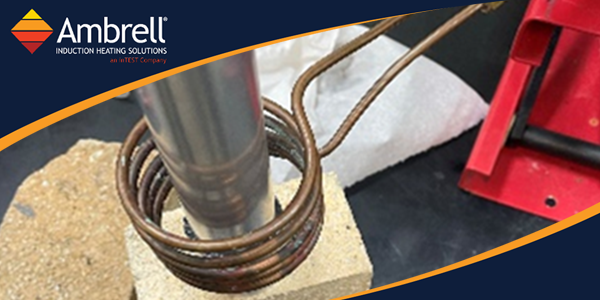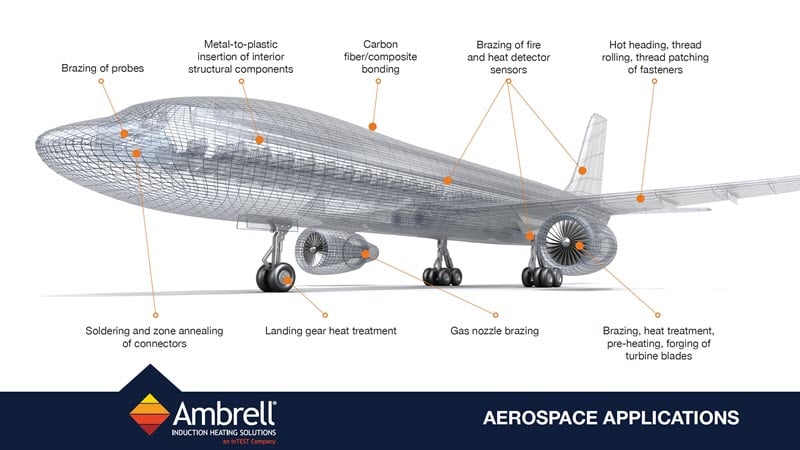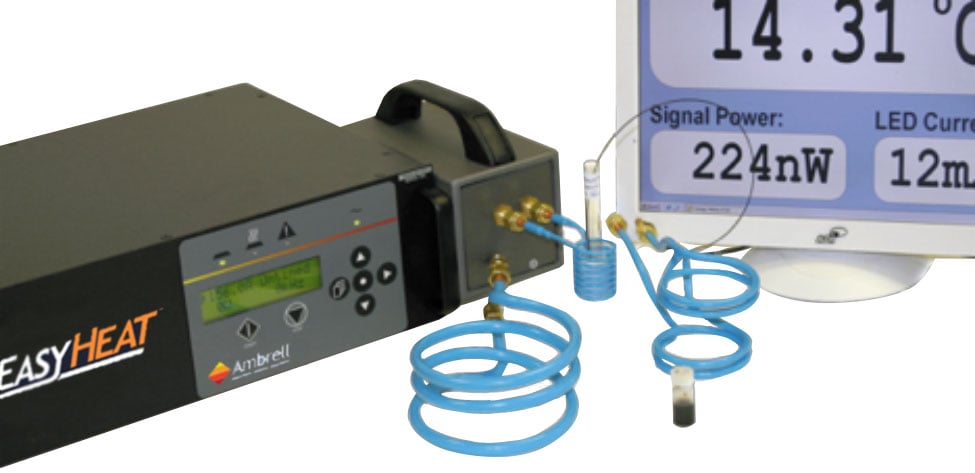Induction Brazing an Aluminum Assembly
Objective A company wanted to assess using induction heating for their aluminum assembly brazing process, and contacted THE LAB at Ambrell to utilize...
Applications
Applications: More
Applications: More

Industries:
Industries: More
Industries: More
Industries: More

Products:
Products: More
Services:
Services: More

Learn:
Learn: More
About:


A manufacturer needed to quickly and repeatedly harden steel blades. They turned to THE LAB at Ambrell to engineer a solution that would work for their blade hardening application. They were drawn to induction heating because of its speed, repeatability and comparative safety.
More Heating Application Notes
A custom-designed single-turn helical coil was built to generate the required heating for this hardening application. Initial tests were conducted to optimize the power delivered to the part using an Ambrell EASYHEAT 6 kW, 150-400 kHz induction heating system. The target temperature for the application is 1600 °F (871 °C).
The application reached temperature in less than 15 seconds, meeting the client's objective. In practice, the part would be run through the coil into a quench.
THE LAB at Ambrell has considerable experience with various heating applications, which enabled them to deliver a solution that met the client's requirements. To learn more about free application testing, visit our page about THE LAB to get the process started.

Objective A company wanted to assess using induction heating for their aluminum assembly brazing process, and contacted THE LAB at Ambrell to utilize...

Induction heating is a process that uses electromagnetic fields to heat electrically conductive materials. It has been used in numerous industries...

Induction heating, a process that uses electromagnetic induction to heat electrically conductive materials, is often thought of for large industrial...